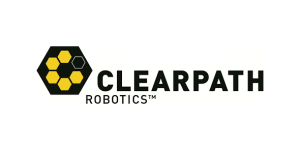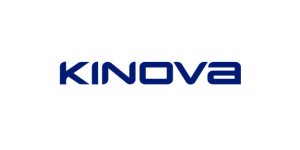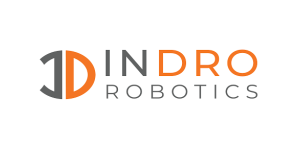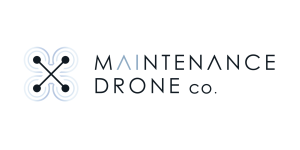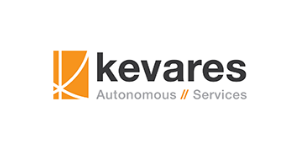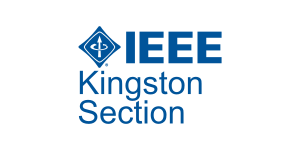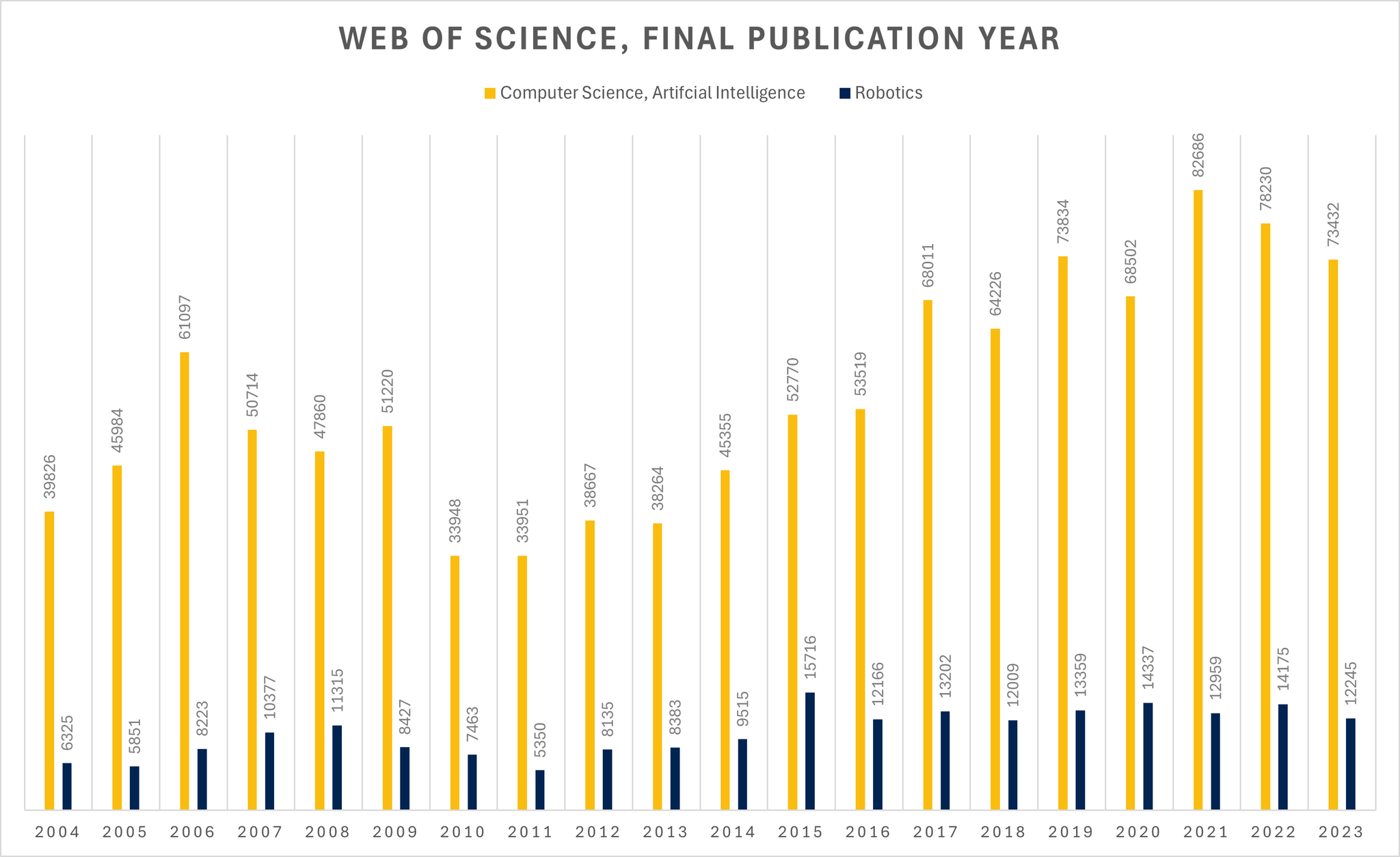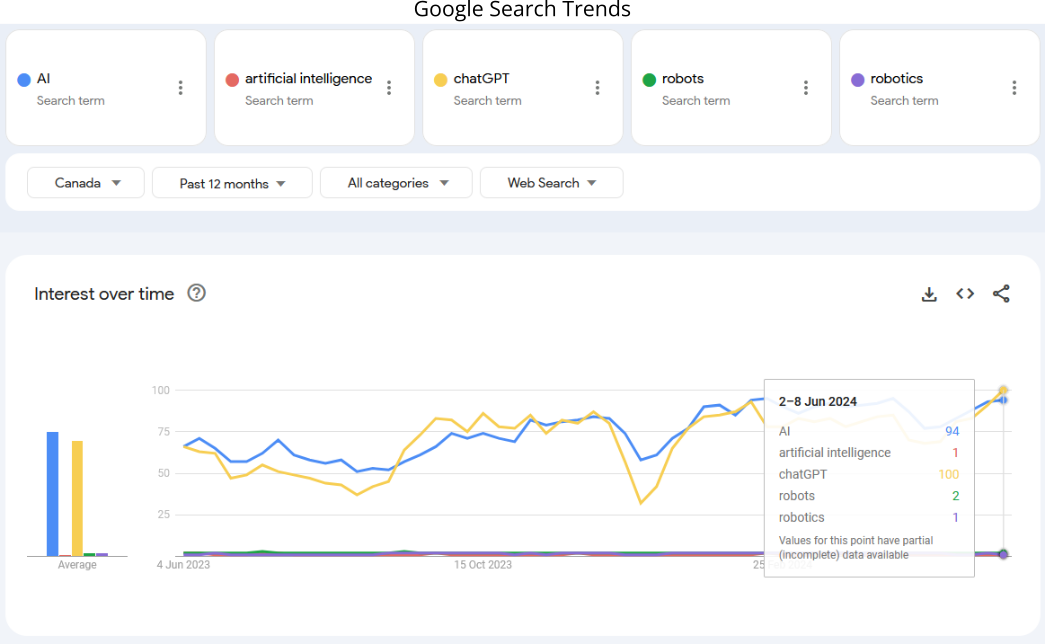We are hosting our annual Robotics and AI Symposium (RAIS2024) this year on August 7, 2024, as part of the 2024 IEEE Canadian Conference on Electrical and Computer Engineering (CCECE 2024) hosted by the Queen's School of Computing and Smith Engineering at Queen's. Attendees for both events will be able to attend our Keynote address as well as both of our debates while RAIS2024 attendees will only be able to attend Ingenuity Labs events in Mitchell Hall.
Agenda
| 08:00am - 09:00am | Registration and Breakfast | Biosciences Complex |
| 09:00am - 09:30am | Opening Remarks | Biosciences Complex, Room 1101 |
| 09:30am - 10:30am | Keynote Speaker Dr. François Pomerleau, Université Laval |
Biosciences Complex, Room 1101 |
| 10:30am - 11:00am | Coffee Break | Biosciences Complex Atrium and Mitchell Hall, Room 395 |
| 11:00am - 12:30pm | AI Debate AI in Education: Boosting Learning or Breeding Laziness |
Mitchell Hall, Room 395 |
| 12:30pm - 03:00pm | Lunch and Corporate Exhibition | Mitchell Hall Atrium |
| 03:00pm - 04:30pm | Robotics Debate Ace of Pace: Is AI Skyrocketing While Robotics Inches Forward? |
Mitchell Hall, Room 395 |
| 04:30pm | Adjourn |
Please note, if you are registered for CCECE 2024, you do not need to register for our symposium. Our events are open to conference attendees. However, we have a limited seating capacity so we will close our doors when we reach our capacity limit.
Corporate Exhibitors
Keynote Speaker
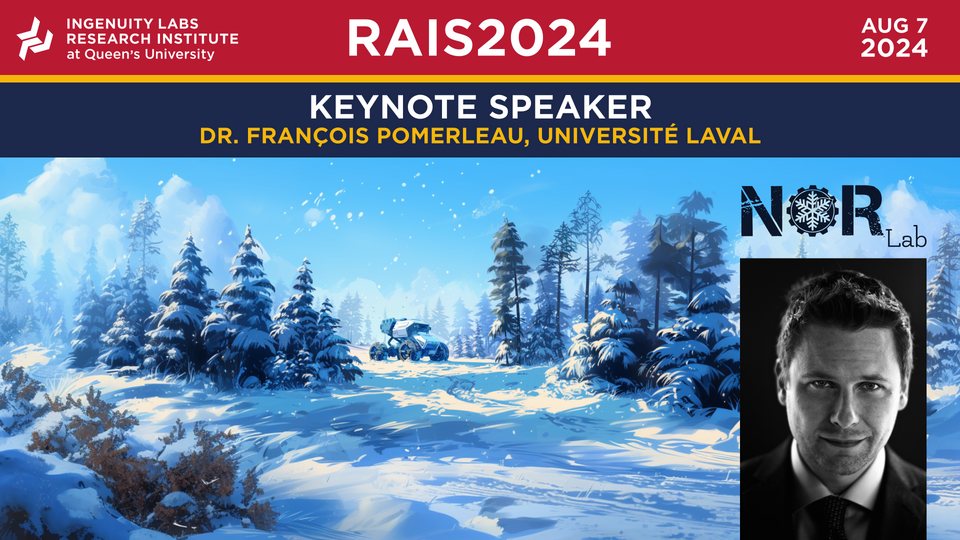
From subarctic to subterranean environments. How to push boundaries through field robotics?
Abstract:
As the promise of autonomous cars keeps being delayed, more and more questions are raised about the accessibility of this technology in remote locations. Moreover, extreme meteorological events are rising with the concretization of climate change. This new reality stresses the importance of the robustness of navigation algorithms against harsh environmental conditions.
In an era of simulations and augmented datasets, this presentation will focus on our efforts in facing complex environments through field robotics. Field robotics is a sub-community of researchers challenging theoretical simplifications with experimental work closer to real applications. We will give an overview of our latest scientific results, emphasizing lessons learned related to lidar-based mapping, navigation in subarctic conditions, and subterranean exploration.
Biography:
François Pomerleau made his debut in research by interacting with the Canadian Space Agency and the European Space Agency during his studies in computer engineering at Sherbrooke University. He got his Master’s degree (François Michaud’s Lab) from this university in 2009 after a one-year stay at EPFL (Roland Siegwart Lab - Switzerland) where he worked on an autonomous car prototype. He completed his Ph.D. at ETH Zurich (Roland Siegwart’s Lab- Switzerland) in 2013 during which he participated in several robotic deployments in uncontrolled environments, including work with European fire brigades and in alpine lakes. After technology transfer activities at Alstom Inspection Robotics and a stay at Laval University (Philippe Giguère’s Lab), he received a postdoctoral fellowships from the Natural Sciences and Engineering Research Council of Canada to continue his research at the University of Toronto in Mobile Robotics (Tim Barfoot’s Lab). He continued his technological transfer activities as a postdoctoral researcher at Laval University in the Robotics Laboratory (Clément Gosselin’s lab) and worked, in collaboration with the Robotiq company, to develop the Industry 4.0. Since September 2017, he is a professor in the Computer Science and Software Engineering Department at Laval University.
His research interests include 3D reconstruction of environments using laser data, autonomous navigation, search and rescue activities, environmental monitoring, trajectory planning and scientific methodology applied to robotics.
He is the Director of the Northern Robotics Laboratory and Co-Chair of the Research & Training Committee for the Canadian Robotics Council.
AI Debate
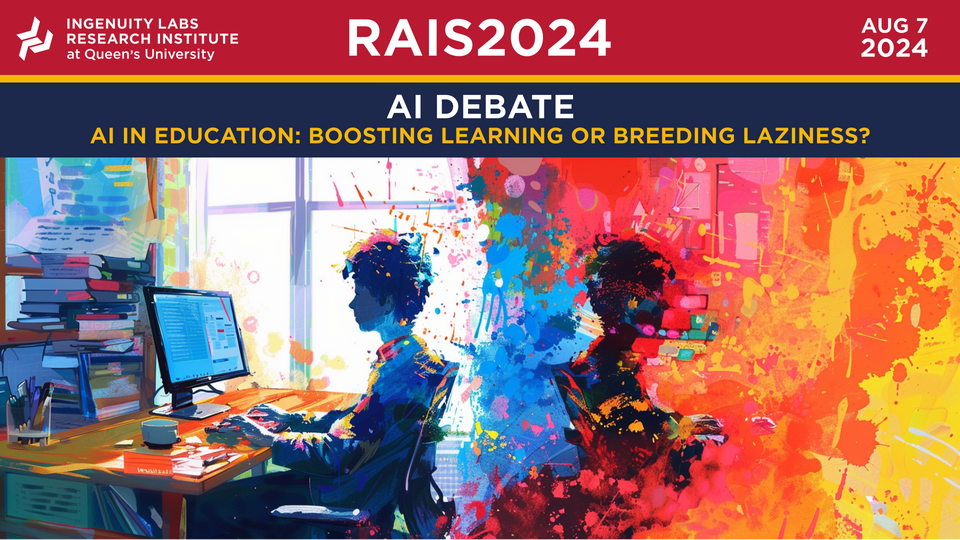
Generative AI has exploded onto university campuses around the world. Many universities are overwhelmed with student use of AI in courses and are working hard on putting together clear guidelines and policies. The World Economic Forum has recently published articles about the promise of AI in revolutionizing education and addressing global equity in education. On the other hand, Psychology Today and other groups have published articles about how AI is harming our ability to think critically. In a hosted talk here at Ingenuity Labs, author Ted Chiang explained that we ask students to write essays not because the world needs more student essays, but because writing teaches them to analyze different points of view and organize their thoughts in a way that makes it easier for others to understand. As it stands today, it is clear that generative AI is disrupting education and, given our role as AI practitioners and educators, we have to ask "AI in Education: Boosting Learning or Breeding Laziness?"
Debate Panel
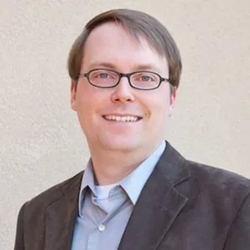
Ryan Grant
Queen's University
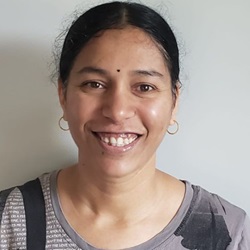
Sowmya Vajjala
National Research Council Canada
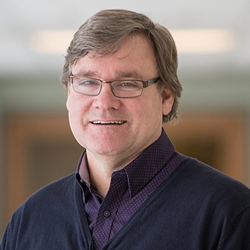
Richard Reeve
Queen's University
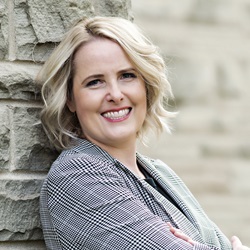
Mary Ott
York University
Robotics Debate
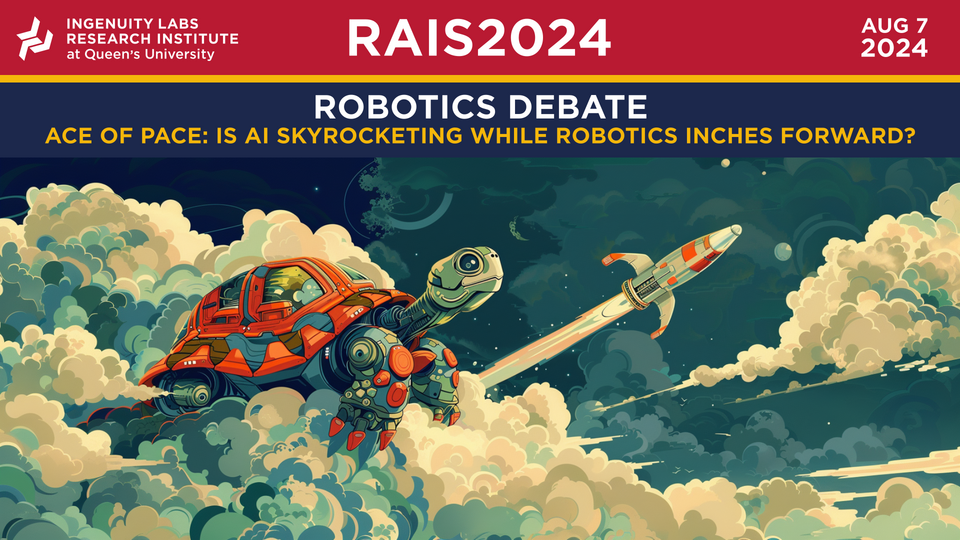
According to Web of Science, there have been 1,147,069 publications from 2003 to 2023 that fell under their category of "Computer Science, Artificial Intelligence." During the same time period, 217,507 publications fell under their "Robotics" category, about 1/5th of the volume. This disparity in research volume is reflected in Jacob Stern's Atlantic article "AI is Running Circles Around Robotics."
On top of that, Canada's published Science, Technology, and Innovation Priorities has AI at the top of the "Technology Advanced Canada" list, but robotics is not even listed. AI has also engaged the public's imagination more so than robotics with "AI" dominating Google Search trends compared to "robotics." This has us questioning: "Is AI Skyrocketing while Robotics Inches Forward?"
Debate Panel
Yue Hu
University of Waterloo
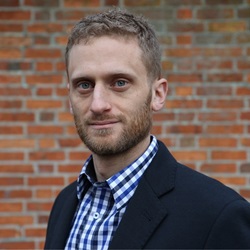
Jonathan Gammell
Queen's University
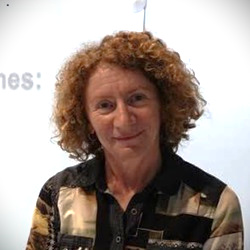
Inna Sharf
McGill University
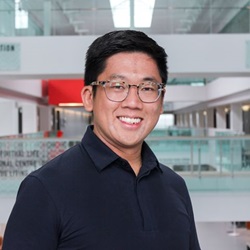
Matthew Pan
Queen's University
